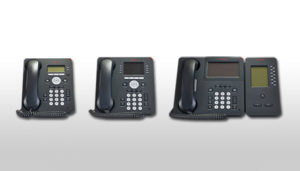Despite the increasing reliance on mobile technology, desk phones remain an essential tool in business communication. Contrary to the assumption that desk phones are becoming obsolete, modern innovations have kept them relevant by integrating advanced features such as VoIP, instant messaging, and video conferencing capabilities. This article explores the reasons why desk phones still play a crucial role in workplace communication and how businesses can leverage their full potential.
Why Desk Phones are Still Relevant
- Reliability and Security: Desk phones continue to outperform mobile devices in terms of reliability. In VoIP-enabled offices, desk phones are inherently more secure and less prone to dropped calls, making them indispensable for critical business communications. Many phone systems also include multiple fail-safe mechanisms to ensure uninterrupted service, especially when integrated with hybrid cloud solutions.
- Advanced Functionality Beyond Calls: Modern desk phones offer much more than just voice communication. Features like integrated voicemail, caller ID, and call forwarding are commonplace. However, newer models come equipped with capabilities like presence detection, instant messaging, and even email integration, transforming them into powerful tools for collaboration. These features enable employees to handle calls and manage other communication channels without having to switch devices.
- Seamless Integration with Mobile Technology: One of the key benefits of modern desk phones is their ability to work alongside mobile devices. Employees can forward calls from their desk phones to their smartphones, access voicemail from any device, and even participate in video conferences using the same system. This integration allows workers to stay connected whether they are in the office or on the go, enhancing productivity and flexibility.
Desk Phones in Modern Business Settings
- Cost-Effective Communication Solutions: For businesses looking to cut costs, desk phones provide a budget-friendly solution. Virtual PBX and VoIP systems can eliminate the need for expensive physical hardware while maintaining high call quality. Many organizations find that desk phones are a cost-effective way to equip their workforce with reliable communication tools, without the need for personal smartphones to double as work phones.
- Flexibility in Communication: Desk phones have evolved to adapt to the modern workplace. Many systems offer hybrid configurations that allow companies to use a combination of VoIP and traditional phone lines. This versatility is particularly useful for companies with a mix of office-based and remote employees. Desk phones can also be part of broader unified communication platforms, enabling video conferencing, messaging, and collaboration tools all in one device.
- Improved Call Quality and User Experience: With features like HD voice and noise reduction technology, desk phones now offer superior call quality compared to many mobile solutions. These phones are optimized for clear communication, which is crucial in industries like customer service, where call quality directly impacts client satisfaction. Additionally, the user-friendly interfaces of modern desk phones simplify the call management process, allowing employees to handle multiple calls, access voicemails, and manage contacts with ease.
The Role of Desk Phones in Unified Communications
- Combining Multiple Communication Channels: The ability of desk phones to serve as a central hub for multiple communication channels is one of their most valuable features. Many modern systems allow integration with email, messaging apps, and CRM tools, providing a seamless communication experience for users. For instance, employees can manage emails, make calls, and send instant messages all from the same device, streamlining workflows and improving efficiency.
- Enhanced Productivity through Collaboration Tools: Desk phones that support collaboration tools like video conferencing and screen sharing can significantly boost workplace productivity. By consolidating communication tools into a single device, desk phones eliminate the need for switching between apps or devices. This centralization reduces downtime and allows employees to focus on their tasks with fewer interruptions.
Best Practices for Desk Phone Usage
- Regular System Updates and Audits: To maximize the benefits of desk phones, businesses should conduct regular system audits. These audits help ensure that the system is fully optimized and that all features are being used effectively. Keeping the system updated also ensures that employees have access to the latest tools and security features, reducing the risk of disruptions and cybersecurity threats.
- Employee Training for Efficient Use: Like any piece of technology, desk phones are only as effective as the employees using them. Providing comprehensive training on the full range of desk phone features ensures that staff members are using the system to its fullest potential. Training should cover basic functions like call forwarding and voicemail, as well as more advanced features like video conferencing and instant messaging.
- Tailoring Desk Phone Features to Your Business Needs: Not every business requires the same set of features, which is why many desk phone systems allow for customization. For instance, businesses that rely heavily on customer support may prioritize call routing and voicemail features, while those focused on internal collaboration may value video conferencing and messaging. Tailoring your desk phone system to meet your specific needs will ensure that it delivers the best possible results.
Far from becoming obsolete, desk phones have evolved to meet the demands of modern business communication. Their reliability, integration with mobile technology, and advanced features make them a valuable asset in any office. By combining traditional functionality with new capabilities, desk phones can enhance productivity, streamline communication, and reduce costs. For businesses that want to stay competitive, investing in a modern desk phone system is a smart choice.


